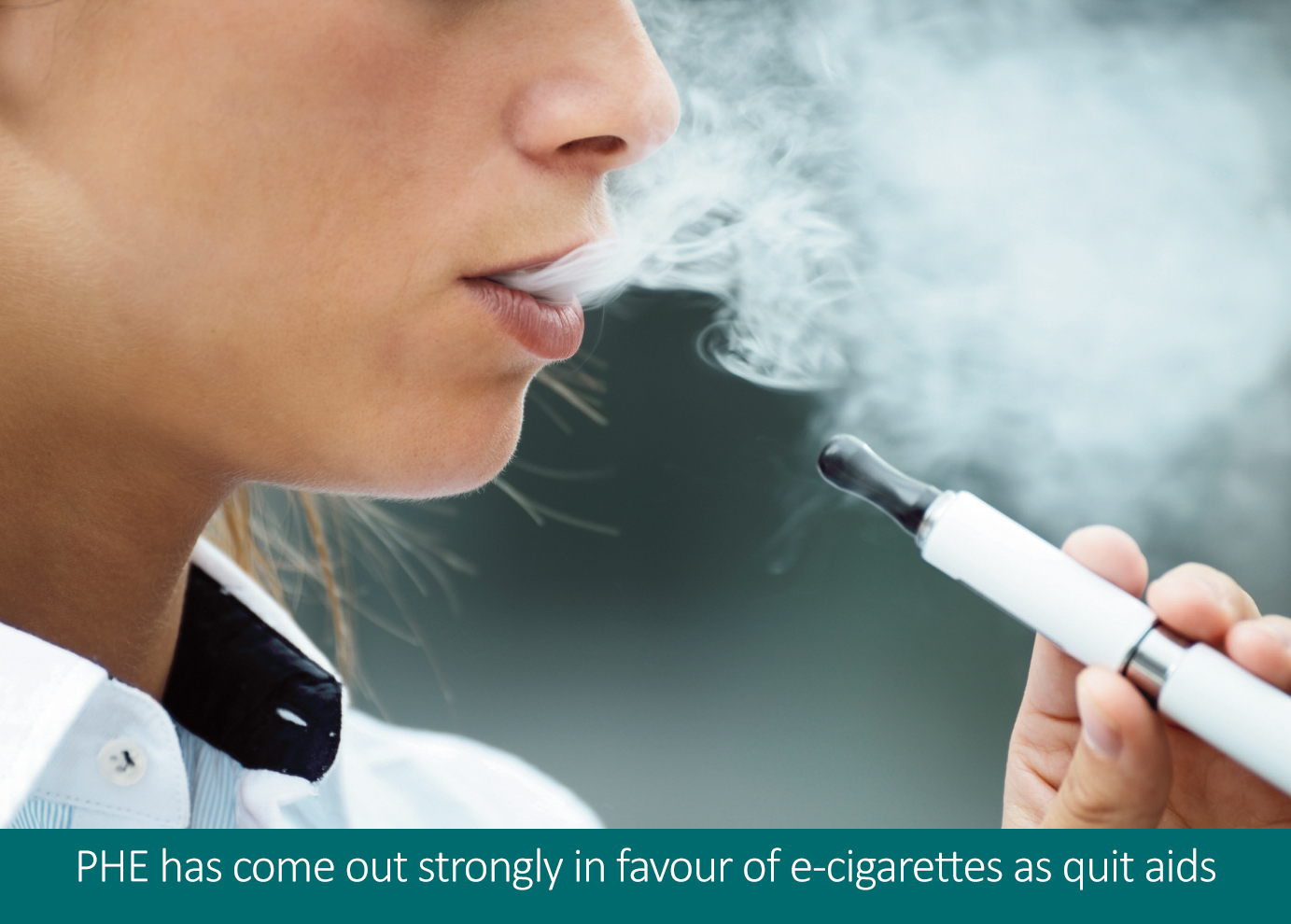Clinical

E-cig debate: Smoke and mirrors?
In Clinical
Let’s get clinical. Follow the links below to find out more about the latest clinical insight in community pharmacy.Bookmark
Record learning outcomes
 Public Health England says vaping is safer than conventional cigarettes and helps people quit and reduce tobacco consumption. But the basis for these assertions immediately came under fire and this is unlikely to be the last word on the matter.
Public Health England says vaping is safer than conventional cigarettes and helps people quit and reduce tobacco consumption. But the basis for these assertions immediately came under fire and this is unlikely to be the last word on the matter.
Public Health England (PHE) commissioned the independent review in question “to ensure that practitioners, policy-makers and, most importantly of all, the public have the best evidence availableâ€. The report, for example, notes that “while vaping may not be 100 per cent safe, most of the chemicals causing smokingrelated disease are absent and the chemicals which are present pose limited danger. It has been previously estimated that [e-cigarettes] are around 95 per cent safer than smoking. This appears to remain a reasonable estimateâ€.
Nevertheless, however reasonable, the 95 per cent reduction remains an estimate. In particular, the long-term risks aren’t known, but vaping is clearly much safer for smokers than tobacco. Despite this, the study was attacked by The Lancet for relying on weak evidence from researchers who had conflicting interests, charges PHE vigorously denied.
PHE suggests that, for smokers who cannot or do not want to stop, switching to e-cigarettes “could help reduce smoking-related disease, death and health inequalitiesâ€. People who attempted to quit, and failed, with other methods “could be encouraged to try e-cigarettesâ€. In addition, the report calls for stop smoking services to offer behavioural support to those using e-cigarettes to quit.
“While smoking cessation services continue to be the most successful way to help people stop smoking, the highest successful quit rates are being seen among smokers who are also using e-cigarettes,†commented Dr Penny Woods, chief executive of the British Lung Foundation.
“Providing healthcare professionals with accurate advice and information on their use is necessary if we are to unlock the full potential of e-cigarettes in helping people to kick their habit. “Concerns do remain as to the long-term health impact of e-cigarettes and while there is no evidence to suggest that they pose anywhere near the same dangers as smoking, we must continue to monitor this area carefully. In the meantime, we do advise that anyone using e-cigarettes to quit smoking should do so with a view to eventually quitting them too.â€

Front line
Pharmacists have long been on the front-line of attempts to reduce smoking-related harm. Yet despite their apparent efficacy in smoking cessation, the RPS does not currently advocate adding e-cigarettes to pharmacists’ armamentarium. “E-cigarettes are currently unlicensed products with no standardisation of safety, quality or efficacy. As such, we believe that they should not be sold or advertised from pharmacies,†said RPS director for England, Howard Duff.
“We echo the views of PHE and support the original intention of the Medicines and Healthcare products Regulatory Agency to regulate e-cigarettes as medicinal products as an aid to smoking cessation.†The licensing process would align e-cigarettes with other nicotine reduction therapies and ensure quality control and standardisation, Duff says.
“E-cigarettes contain less harmful toxins than tobacco but still contain nicotine, which is an addictive substance. As they are a very new product, no-one can be sure of the consequences of long-term use on health and further research is needed to determine this.†Until licensed products reach the shelves, pharmacists can help dispel the myths and misconceptions that surround nicotine and e-cigarettes.
For example, according to the PHE report, “some evidence†suggests that certain people regard ecigarettes as “less harmful than medicinal nicotine replacement therapyâ€. Furthermore, internet sites supporting smokers’ and vapers’ rights claim that there is no direct evidence that nicotine itself is addictive in humans but, as the Royal Society for Public Heath (RSPH) noted in a briefing document last month, “some researchers†describe nicotine “as the third strongest ‘dependence-forming drug’, behind heroin and crack cocaineâ€.
A RSPH survey found that 90 per cent of non-smokers and 78 per cent of smokers believe nicotine is harmful to health. However, the RSPH remarks that “in low concentrations, nicotine is not deleterious to healthâ€, saying it does not seem to be a direct carcinogen or increase the risk of cardiovascular events. The PHE report points out that most people still perceive e-cigarettes as less harmful than tobacco but also mentions that there has been “an overall shift towards the inaccurate perception of [e-cigarettes] being at least as harmful as cigarettes over the last yearâ€. While the report helps clarify this controversial subject, it is clear the debate is set to rumble on for a while yet.
Â
In Wales...
...vaping could soon be banned in public. A proposed Welsh Government Bill suggests restricting the use of nicotine inhaling devices such as electronic cigarettes in “enclosed and substantially enclosed public and work placesâ€, bringing them into line with existing provisions on smoking.
The highest successful quit rates are being seen among smokers who are also using e-cigarettes
